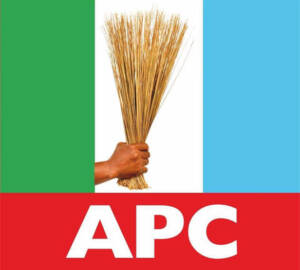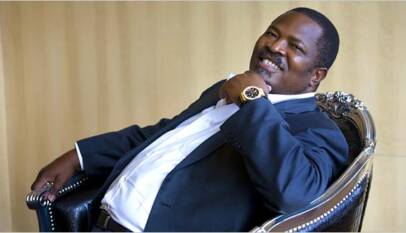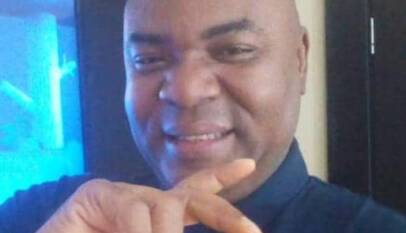One-Party State: A descent into undemocratic status

By George Ozalla
“The price of apathy towards public affairs is to be ruled by evil men,” warned the great philosopher Plato centuries ago. His words, though ancient, ring with haunting resonance in today’s Nigeria, where democracy, once hailed as a triumph of collective will, is now sliding dangerously toward a one-party state.
The recent wave of defections sweeping through the political landscape is not only alarming—it is an existential threat to the nation’s democratic future.
In the past few days, Nigerians have watched with uneasy silence as governors and political heavyweights abandon their parties in droves to align with the ruling establishment.
The defection of the Enugu State Governor, Dr. Peter Ndubuisi Mbah, was swiftly followed by that of Senator Douye Diri, the Governor of Bayelsa State. Both defections, draped in the familiar language of “national alignment” and “development synergy,” have further weakened the opposition and intensified public cynicism. But beneath these official statements lies a disturbing reality—a systematic collapse of opposition politics and a consolidation of unchecked political dominance. The question now is not if others will follow, but who is next.
Nigeria’s democracy has long been hostage to a political class driven by personal ambition rather than ideology. Defections, once an occasional act of political recalibration, have become a recurring ritual of self-preservation.
According to data compiled by the Centre for Democracy and Development (CDD), between 2015 and 2023, more than 200 elected officials, including over 40 federal legislators, switched parties—many gravitating toward the ruling bloc. This trend has reduced political parties to mere vehicles for power rather than platforms for policy and principle.
Most unfortunate, however, is the unhealthy influence wielded by state governors. In many cases, they have become demigods within their domains—commanding not just political loyalty but total submission. Wherever a governor goes, the hapless masses, local government chairmen, and even lawmakers follow without question or conviction.
It smacks of arbitrariness and political servitude. To make matters worse, reports of governors threatening deputy governors and other officials who refuse to defect alongside them reflect a despotic mindset that has no place in a democratic society.
A true democracy thrives on dissent, debate, and diversity of thought. Yet, what we see unfolding is a homogenized political elite—different names, same motives, and identical failures.
The opposition, which should provide checks and balance, has grown weak, uninspiring, and disorganized. Their lethargy has turned them into passive spectators rather than active challengers. Ironically, many of these same actors, when they held the reins of power, governed with the same arrogance and insensitivity now associated with the ruling party.
The implications of this trend are dire. A one-party state, whether by coercion or convenience, breeds complacency and corruption. Without credible opposition, government accountability becomes a mirage, and public policy stagnates under the weight of unchallenged power.
Nigeria risks returning to the dark days of its political history when dissent was silenced, elections were mere rituals, and loyalty to the ruling class mattered more than loyalty to the people.
Our democratic journey, though imperfect, was built on hard-fought battles—sacrifices by citizens, journalists, activists, and politicians who believed in the sanctity of choice. From the struggle against military dictatorship in the 1990s to the celebrated 1999 transition, every gain was earned through resistance to authoritarian tendencies. Yet, 26 years later, we find ourselves circling back, as if history is mocking our short memory and fragile institutions.
The average Nigerian voter, already disillusioned, sees little difference among political actors. Voter turnout has plummeted to an embarrassing low—from over 69% in 2003 to barely 26% in 2023, according to Independent National Electoral Commission (INEC) data. That is not just voter fatigue; it is a cry of despair—a sign that the people no longer believe their vote matters in a political ecosystem dominated by defections, intimidation, and unprincipled alliances.
Having observed Nigeria’s political processes closely and engaged the civic space for years, I can say with conviction that our democracy is endangered not merely by those in power, but by the silence and complicity of those outside it.
The reality is that the only true opposition left today is the citizens themselves. The organized labour movement, faith-based institutions, and even segments of civil society that once held power accountable have all grown timid, compromised, or partisan. What remains is a fragile public conscience struggling to survive in an environment hostile to dissent.
In the words of the late Chinua Achebe, “The trouble with Nigeria is simply and squarely a failure of leadership.” Achebe, a literary giant and moral compass of his generation, believed that nations fall not because of lack of resources but because of the character of those who lead them. Our leaders’ obsession with power over purpose, and self-interest over service, is gradually hollowing out the spirit of democracy.
Nigeria stands today at a crossroads where silence is complicity and indifference, a quiet betrayal. The choice before us is simple: to surrender our democracy to convenience, or to defend it through courage and conviction. Every citizen must now become the opposition—in thought, in voice, and in action. Plato warned of the price of apathy; it is time we stop paying it.
Publisher & Editor-in-Chief of NEWSCOUNT
CP Orutugu assures Aguata, Otuocha of neutral Police stand ahead of gov poll
Stanley Ihedigbo As part of ongoing security engagements ahead of the November 8, 2025, An…






